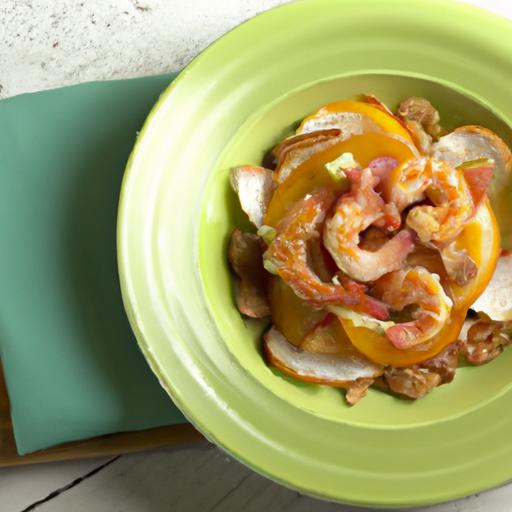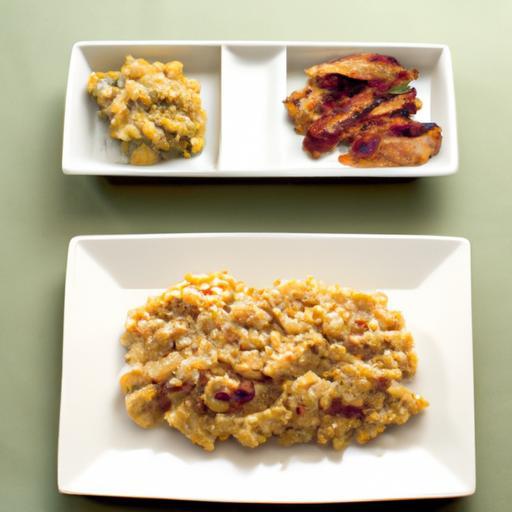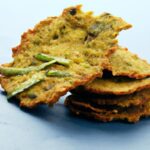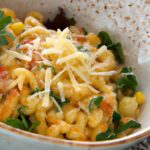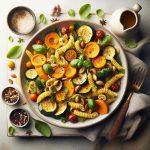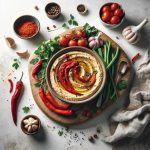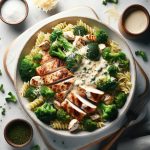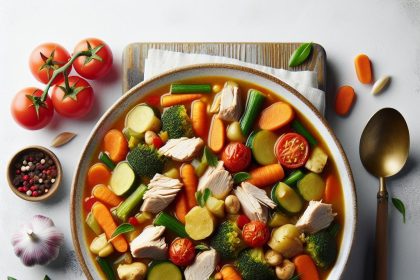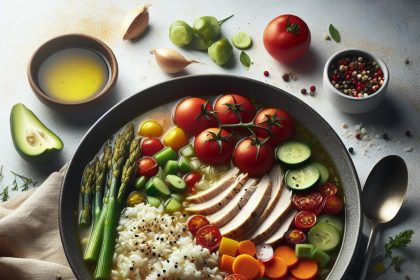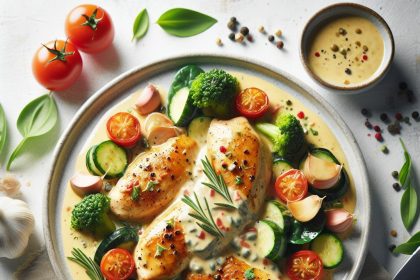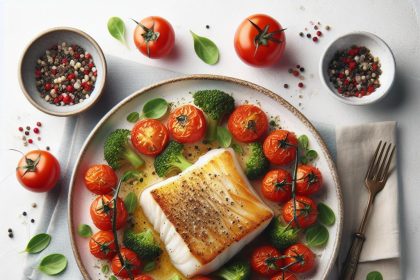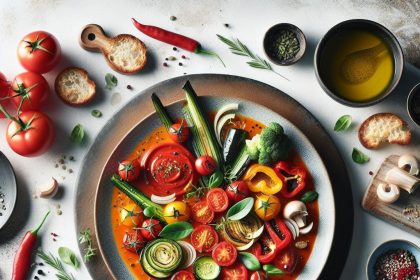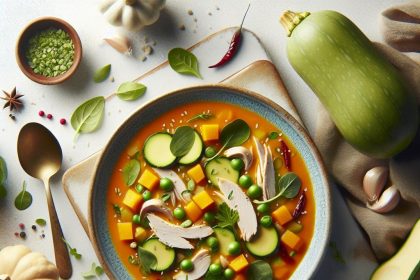In today’s world, where dietary choices are as diverse as the colors on a kitchen palette, having a well-stocked gluten-free pantry is more than just a convenience-it’s a culinary foundation. Whether you’re navigating celiac disease, gluten sensitivity, or simply embracing a gluten-free lifestyle, knowing which essentials to keep on hand transforms everyday cooking from a challenge into a delight. From hearty grains to versatile flours and flavorful seasonings, the right staples empower you to whip up everything from comforting breakfasts to decadent desserts without missing a beat. Join us as we explore the must-have gluten-free ingredients that promise to keep your kitchen ready for any recipe, mood, or craving.
Gluten-Free Pantry Staples are the cornerstone of crafting delightful, wholesome meals without compromise. Building your kitchen arsenal with nutrient-dense gluten-free grains and flours opens a world of culinary possibility-from fluffy breads to rich, tender cakes. Equally, legumes offer a dynamic mix of texture and protein that elevates everything from hearty salads to savory stews. Paired with shelf-stable sauces and condiments, your creations will burst with vibrant, layered flavors effortlessly. And don’t forget the smart snacking essentials: nuts, seeds, and gluten-free bars provide on-the-go nourishment that’s both satisfying and energizing. This curated guide to essential ingredients will inspire you to bake, cook, and snack with confidence and creativity every day.
Prep and Cook Time
- Preparation: 15 minutes
- Cooking: Varies by recipe (5 to 45 minutes)
- Total Time: 20 to 60 minutes
Yield
Multiple recipes-yields depend on specific dishes created with these staples.
Difficulty Level
Easy to Medium-perfect for beginners and seasoned cooks aiming to expand gluten-free repertoire.
Ingredients to Build Your Gluten-Free Pantry Arsenal
- Flours and Grains: 2 cups brown rice flour, 1 cup almond flour, 1 cup tapioca starch, ½ cup quinoa flour, 1 cup millet (whole grain), 1 cup amaranth
- Legumes: 1 cup dried chickpeas, 1 cup green lentils, 1 cup black beans, ½ cup split peas
- Shelf-Stable Sauces & Condiments: ½ cup tamari (gluten-free soy sauce), ¼ cup apple cider vinegar, ¼ cup olive oil infused with garlic, ¼ cup harissa paste, 1 jar sun-dried tomato pesto
- Smart Snacks: ½ cup raw almonds, ½ cup pumpkin seeds, assorted gluten-free bars (such as nut & seed blend bars with date syrup)
Instructions: How to Use These Staples Creatively
- Whip up a gluten-free flour blend: Combine 1 cup brown rice flour, ½ cup almond flour, and ½ cup tapioca starch. Use this versatile mix for pancakes, muffins, or savory flatbreads.
- Cook legumes from scratch: Soak 1 cup chickpeas overnight, then simmer in fresh water for 60-90 minutes until tender. Use in grain bowls, curries, or homemade hummus.
- Layer flavors with your sauces: Toss cooked millet with tamari and olive oil infused with garlic for a simple side. Swirl harissa paste or sun-dried tomato pesto into soups or pasta to transform the dish.
- Snack smarter: Pack a handful of raw almonds and pumpkin seeds alongside a gluten-free nut bar for balanced energy on the go.
- Experiment with baking: Substitute quinoa flour for up to 25% of your base flour to enhance texture and nutrition when baking bread or cookies.
Tips for Success
- Always sift gluten-free flours before measuring to avoid clumps and ensure accurate amounts.
- Make small test batches when trying a new flour blend; adjusting moisture levels is key for perfect crumb and structure.
- Soak legumes longer in hard water areas to speed up cooking times.
- Store your nuts and seeds in airtight containers in the refrigerator to maintain freshness and prevent rancidity.
- Use shelf-stable sauces as flavor boosters rather than main ingredients to keep your dishes balanced and vibrant.
Serving Suggestions
- Transform cooked black beans into a smoky dip by blending with garlic, lime juice, and a dash of tamari; serve with gluten-free crackers.
- Top quinoa salad with toasted pumpkin seeds and a drizzle of olive oil infused with garlic for a burst of texture and richness.
- For breakfast, combine millet porridge with chopped almonds and a spoonful of sun-dried tomato pesto for a savory twist on a classic.
- Snack trays featuring raw nuts, seed crackers, and gluten-free bars make perfect additions to a picnic or casual gathering.
| Ingredient | Calories (per ¼ cup) | Protein (g) | Carbs (g) | Fat (g) |
|---|---|---|---|---|
| Brown Rice Flour | 150 | 3 | 32 | 1 |
| Almond Flour | 160 | 6 | 6 | 14 |
| Cooked Chickpeas | 70 | 4 | 12 | 1 |
| Raw Almonds | 200 | 7 | 6 | 18 |

For more on gluten-free baking essentials, check out our comprehensive guide. For a deeper dive into legumes as a sustainable protein source, visit Unilever Food Solutions.
Q&A
Q&A: Gluten-Free Pantry Staples – Essentials for Every Kitchen
Q1: Why should I have dedicated gluten-free pantry staples?
A1: Keeping a dedicated gluten-free pantry helps avoid cross-contamination, ensures you always have safe ingredients on hand, and makes gluten-free cooking stress-free and enjoyable. It’s like creating a mini gluten-free haven in your kitchen!
Q2: What are the must-have flours for a gluten-free pantry?
A2: Brown rice flour, almond flour, coconut flour, and tapioca starch are pantry superheroes. Each brings unique textures and flavors-brown rice flour for lightness, almond flour for richness, coconut flour for absorbency, and tapioca starch for that perfect chewiness.
Q3: Are there gluten-free grains I should stock?
A3: Absolutely! Quinoa, millet, buckwheat, and amaranth are excellent gluten-free grains. They’re nutrient-packed, delicious, and versatile-from breakfasts to hearty salads and side dishes.
Q4: What about binders and thickeners?
A4: Xanthan gum or guar gum are key players in gluten-free baking, helping your goods hold together beautifully. For thickening sauces and soups, arrowroot powder or cornstarch work wonders.
Q5: Can I keep gluten-free snacks in my pantry?
A5: Yes! Stock up on gluten-free nuts, seeds, rice crackers, dried fruits, and popcorn. They’re perfect for quick bites and keep your gluten-free lifestyle tasty and convenient.
Q6: How do I ensure packaged items are truly gluten-free?
A6: Always check labels for certified gluten-free seals and read ingredient lists carefully. Cross-contamination can hide in unexpected places, so staying informed is your best defense.
Q7: Any herbs, spices, or condiments I should never run out of?
A7: Definitely keep gluten-free soy sauce or tamari, nutritional yeast, and a spectrum of spices like paprika, cumin, and garlic powder. These staples boost flavor and help you whip up gluten-free dishes that dazzle.
Q8: How do gluten-free pantry staples change cooking routines?
A8: They open up a world of creativity! Once your pantry is stocked, gluten-free cooking becomes intuitive-no scrambling for alternatives, just pure culinary expression tailored to your dietary needs.
Q9: What tips do you have for organizing a gluten-free pantry?
A9: Use clear containers to keep ingredients visible and fresh, label everything, and separate gluten-free items from gluten-containing ones completely. This organization not only safeguards but also inspires regular cooking triumphs.
Q10: Is it expensive to maintain a gluten-free pantry?
A10: While some gluten-free specialty products cost more, many staples like rice flour, quinoa, and beans are wallet-friendly. Shopping in bulk and seasonal sales can make your gluten-free pantry both affordable and fully stocked.
Embrace these gluten-free essentials, and your kitchen will become a treasure trove of safe, delicious, and wholesome possibilities!
The Conclusion
As you embark on your gluten-free journey or simply expand your culinary horizons, stocking your pantry with these essential staples transforms every meal into a safe, delicious adventure. With flours that bake, grains that nourish, and seasonings that elevate, your kitchen becomes a haven where gluten-free creativity knows no bounds. Embrace these essentials not just as ingredients, but as the building blocks of flavorful, carefree cooking-because a well-stocked gluten-free pantry is the secret ingredient to thriving in every dish. Happy cooking, and here’s to your healthiest, happiest kitchen yet!